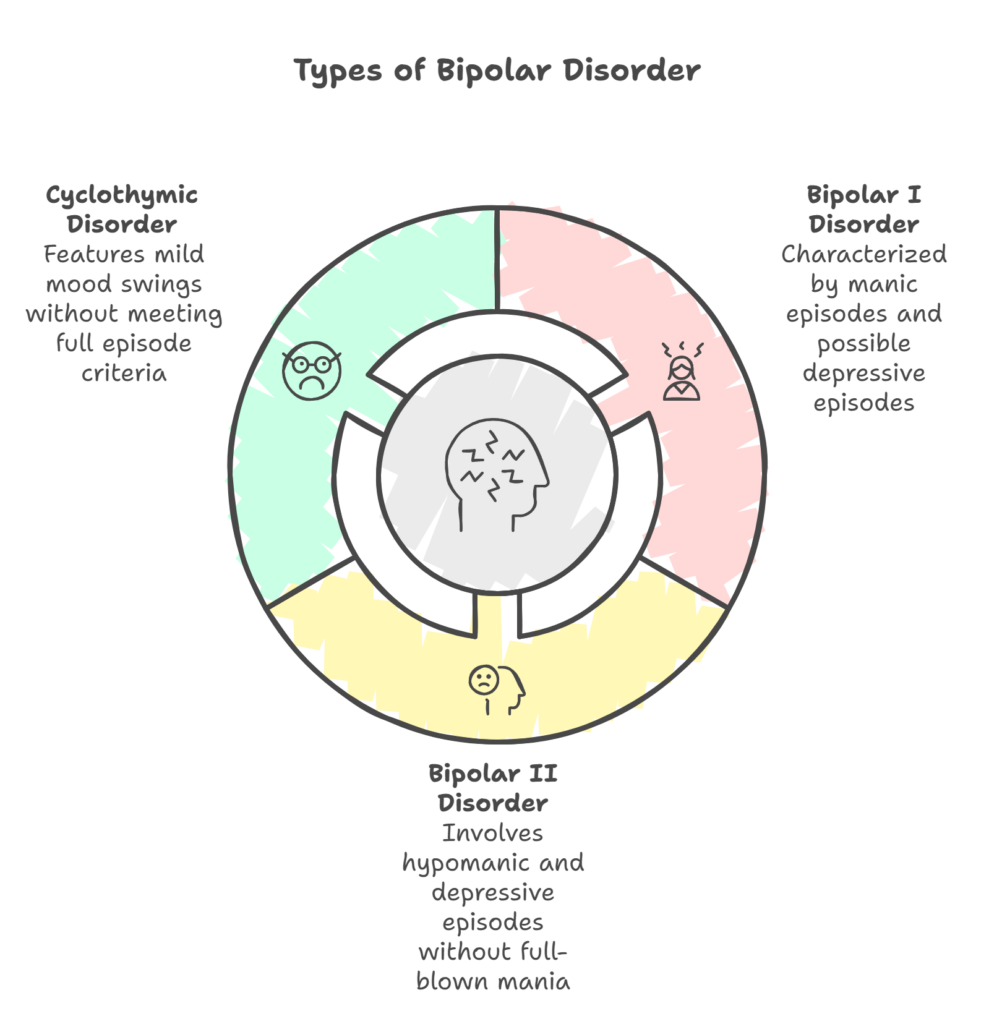Living with bipolar disorder is overwhelming. It often feels like an endless tug-of-war within yourself. For many, it is a struggle between the intense highs that seem to take over without warning and the dark, heavy lows that make even the simplest tasks feel impossible. These drastic mood swings can strain relationships, disrupt careers, and create a sense of chaos that leaves you, or someone you love, feeling isolated and misunderstood.
But it doesn’t have to be this way. Finding stability is possible; you don’t have to go through it alone. This is where bipolar disorder therapists can make all the difference. With the compassionate support of a therapist who understands the complexities of bipolar disorder, you can start to untangle the patterns, recognize the triggers, and learn powerful tools to regain control. A skilled therapist offers more than just guidance. We at Relevance Recovery offer hope and the possibility of a balanced life, where each day doesn’t feel like a battle. With the right support, you can move toward a life where stability is not just a distant hope but a reality within reach.
Let’s talk about how a bipolar disorder therapist can help you regain control of your life and how beneficial it can be for you.
So, What is Bipolar Disorder?
Well, it is more than just a mood swing; bipolar disorder is a condition marked by extreme shifts between mania (or hypomania) and depression. These episodes are unpredictable, affecting nearly every aspect of life.
In moments of mania, you may feel on top of the world, driven by energy that feels unstoppable. Yet, in the lows of depression, even the simplest of tasks may feel impossible. It’s exhausting, and without the right tools, it can disrupt nearly everything.
Working with a bipolar disorder therapist can make an incredible difference here. They offer insights into managing these shifts effectively, helping you understand why these cycles happen and how to respond in a way that supports your long-term well-being.
Choosing to work with a bipolar disorder therapist isn’t just about talking through symptoms. It’s about discovering a renewed sense of control and understanding. A skilled therapist provides practical strategies that go beyond day-to-day survival, guiding you toward a life that feels more balanced and less dominated by these mood extremes.
Studies show that people with bipolar disorder who participate in regular therapy have up to a 50% lower relapse rate compared to those who rely solely on medication. Therapy provides essential coping skills for long-term stability.
Here are a few suggestions to consider:
Tackling these steps with the therapists enables someone to not only alleviate bipolar symptoms but also be in a position to live life beyond the confinements of bipolar disorder.
Understanding your type of bipolar disorder is very important since it influences the course of your recovery.

There are many types, all of which have their own difficulties and treatment requirements.
Different types require individual approaches, and with the help of the therapist, you can determine which works best for you. By knowing more, you can easily wake up each day, resolving to be better.
Therapy is not an instantaneous solution but a process. In the long run, it has the potential to change perception towards how the condition known as bipolar disorder can run one’s life. So, what can you look forward to?
As you progress through therapy, your therapist’s ongoing support becomes a source of strength, especially during challenging times, reminding you that you are not alone in this journey.
There are various approaches therapists carry out to manage bipolar disorder, and they all address the condition from different perspectives. To give you a picture of some of the most powerful methods out there:
With these therapies, you’re not only gaining tools but also a roadmap for managing bipolar disorder. Having a therapist by your side who understands these approaches makes the process smoother and more supportive.
Therapy and medication can work hand-in-hand to bring even more stability. Combining therapy with medication leads to improved mood regulation and overall quality of life for 90% of those with bipolar disorder, as therapy addresses key thought patterns alongside medication.
Therapists often help coordinate care with your doctor, exploring options like:
By understanding what each medication does, a therapist can help you make the best choices for your unique situation. Therapy and medication, when used together, create a foundation that helps many find relief from the weight of bipolar disorder.
If you or someone you love is struggling with bipolar disorder, know that there’s a way forward. Therapy can feel daunting, especially in the face of such a complex condition, but each session is a step toward reclaiming a balanced life. By working with a bipolar disorder therapist who offers compassionate, targeted support, you can build a life less defined by mood swings and more by meaningful moments of peace and stability.
Recovery Recovery provides comprehensive, personalized therapy options that meet you where you are, guiding you toward a future of wellness and hope. Let today be the first step toward a life that feels fully yours.
FAQs
A licensed mental health professional specializing in mood disorders, such as a clinical psychologist or psychiatrist, is ideal. Look for someone experienced in cognitive-behavioral therapy (CBT) or dialectical behavior therapy (DBT) to address bipolar symptoms effectively.
The best support often comes from a combination of family, friends, and professionals. Loved ones who understand the condition, alongside a therapist or support group, can create a strong network to foster understanding and provide encouragement during challenging times.
Effective therapies for bipolar disorder include cognitive-behavioral therapy (CBT), interpersonal therapy, and family-focused therapy. Medication, such as mood stabilizers, may also be necessary. A therapist will tailor the approach to meet individual needs and help manage symptoms.
A bipolar crash can manifest as overwhelming sadness, fatigue, and feelings of hopelessness. Individuals may experience difficulty concentrating, disrupted sleep patterns, and a lack of motivation. This phase can be deeply distressing, making support crucial for recovery.